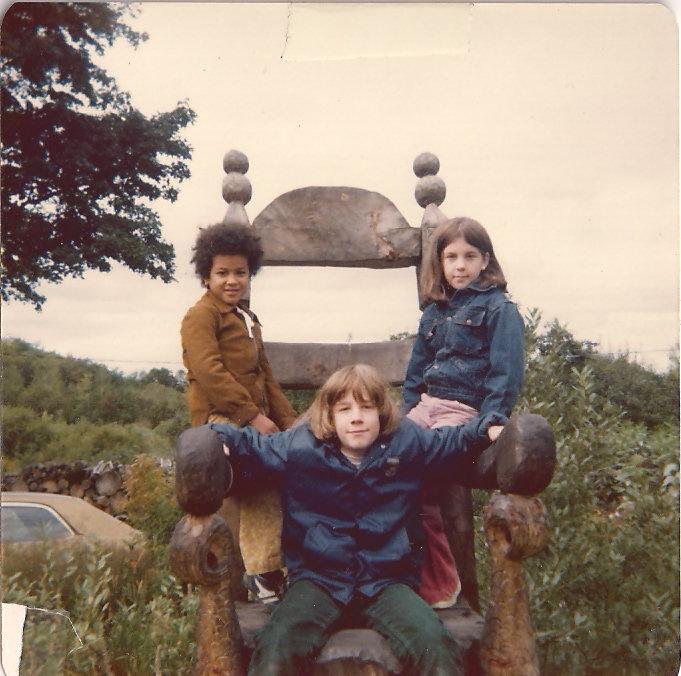Heidi Durrow discusses her novel “The Girl Who Fell From the Sky”
The Leonard Lopate Show
WNYC Radio (93.9 FM or 820 AM)
Friday, 2010-05-14, 12:00-14:00 EDT (16:00-18:00Z)
Leonard Lopate, Host
Heidi W. Durrow, Author

Destruction, Restoration
We’ll look into how Europe’s economic problems are creating political problems—we’ll check in on the state of the euro and on Greece’s ongoing debt woes. Then, Iranian artist Shirin Neshat talks about her debut feature film “Women Without Men.” Plus Heidi Durow discusses her novel The Girl Who Fell From the Sky. And Please Explain is all about art restoration!
Listen to the interview here. The audio stream is here. Download the audio clip (00:13:26, 5.4MB) to your computer here.
00:05:36 Leonard Lopate: The Bellwether Prize is for works that issues of social justice. You’ve attended law schools as well. Did you write this novel as social commentary?
00:05:47 Heidi Durrow: I wanted to explore this story ’cause I don’t think we talk about it often enough… about multiracial families and biracial identity. We had this great moment during President Obama’s candidacy when we got to talk about ‘biracial’ and the fact that his grandmother was white and his mother was white. And then on Inauguration Day he became our first black African American president. And we lost that opportunity to talk about biracial identity I think.
00:06:13 LL: Well, often when someone is biracial, the decision of the rest of the world is that they’re ‘black’.
00:06:21 HD: Yes. That was my experience.
00:06:21 LL: So Tiger Woods, who saw himself as very much being Asian—we don’t want to talk about his other problems. But anyway, he was automatically ‘black’ and Barack Obama… he’s automatically ‘black’.
00:06:34 HD: And I think that’s fine. I do believe in self-identification. So that when people who are mixed-race decide to be one or the other, I’m absolutely for that. I just feel like, we lose stories when we don’t tell our whole selves.
00:06:48: LL: So what happens when someone like Rachel goes to school and is in classes where pretty much all of her classmates are black?
00:06:57 HD: They don’t understand her in the book. And it’s the same thing for me, they just didn’t understand where I fit… at all. I remember being at home speaking Danish with my mother, having Danish food and then as soon as we opened the door and went outside, I was a black girl and it erased that whole story, that whole existence that was me…
00:10:54 LL: In addition to writing, you also write a blog with Fanshen Cox called ‘Mixed Girls Chat’.
00:11:00 HD: ‘Mixed Chicks Chat’.
00:11:01 LL: ‘Mixed Chicks’… Okay.
00:11:03 HD: Yeah, and it’s weekly podcast we do every Wednesday. And we talk about being racially and culturally mixed. So we interview people who are in blended families, parents. We had a Harvard scholar on, which is exciting.
00:11:15 LL: I would assume—from what I know—that something like at least 90 percent of all African Americans—maybe 100 percent—are of mixed race.
00:11:26 HD: I think probably we’re all mixed in some way. And that’s what I’m so excited about with this book. ‘Cause I’ve been doing some readings around. And I find that people are sharing the fact that their families are blended… suddenly.
00:11:39 LL: So this is something that would not have been discussed in the past? People would have been forced to just make a choice… say I’m ‘white’ or ‘black’?
00:11:44 HD: I think that’s right… Yeah, I mean, remember the controversy with Michelle Obama’s—I think—great-great grandfather and they discovered that he was biracial. And there was a little bit of controversy about that… I think, because people wanted to say ‘this our first African American First Lady’ and wanted to really hold on to that as opposed to actually sharing the real true story of this man in her past who was biracial as well…

